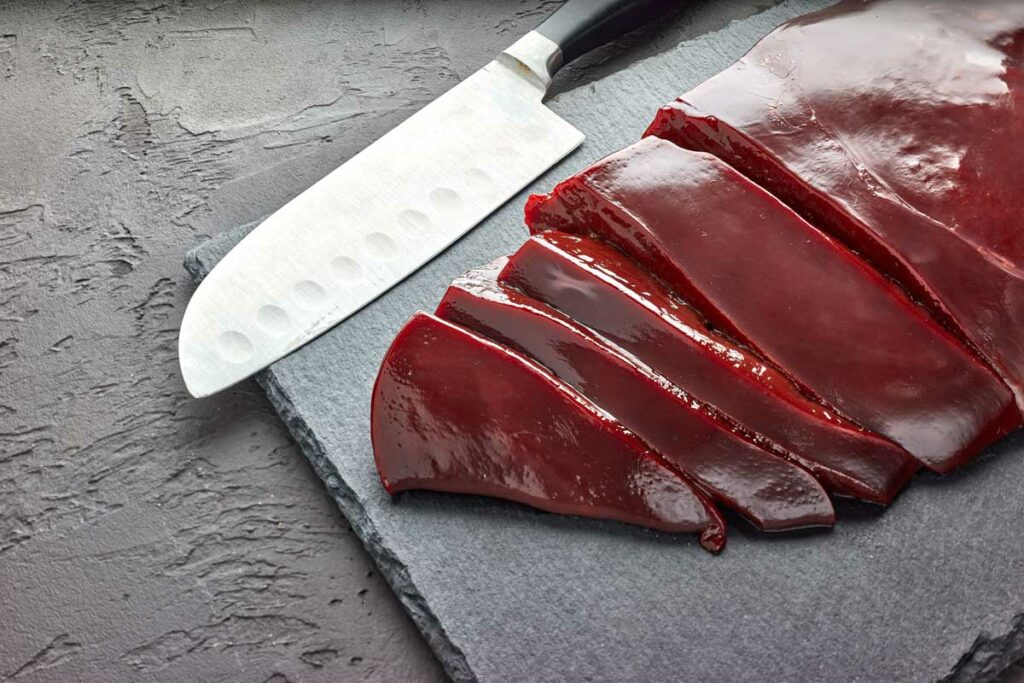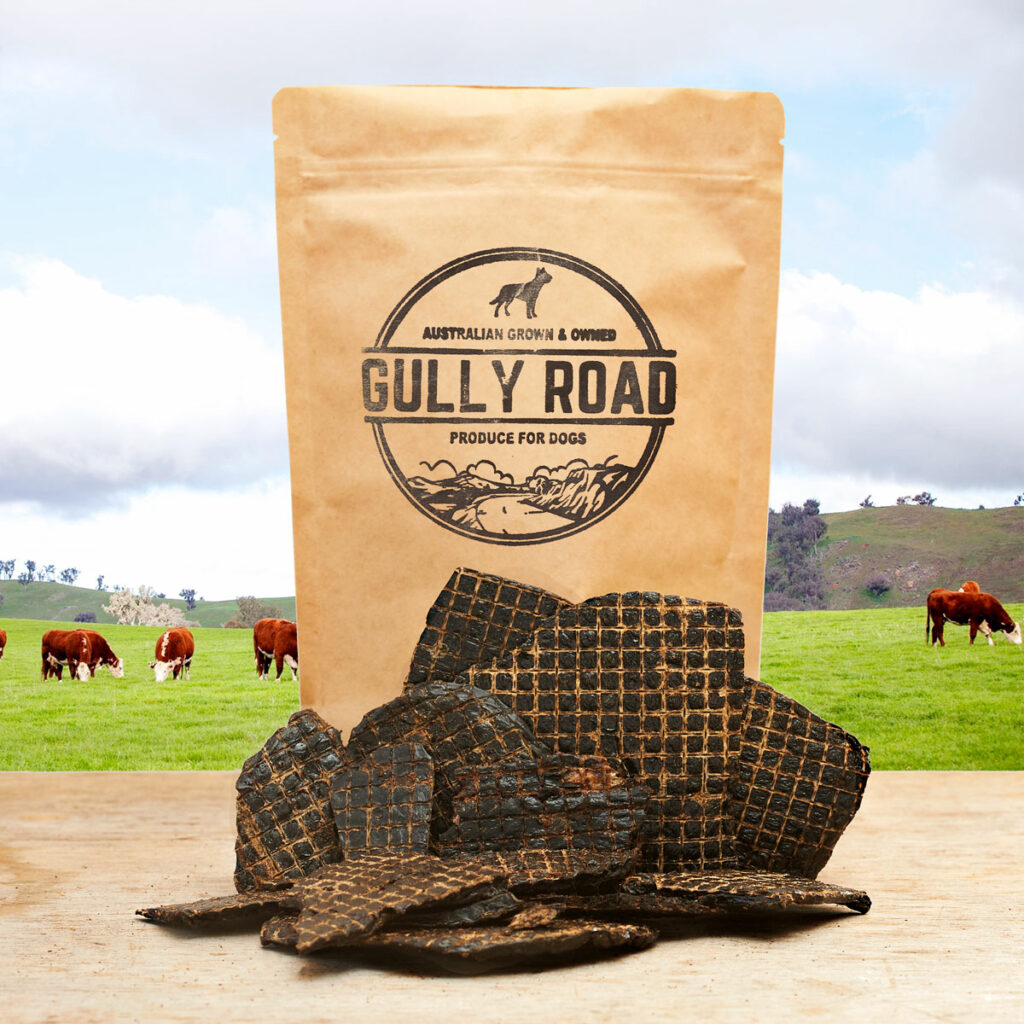You’ve probably heard that beef liver is a popular treat for dogs, with many dog owners claiming it has numerous health benefits for their furry friends. This article will examine whether beef liver is a beneficial addition to a dog’s diet by examining its nutritional value, benefits, considerations, potential drawbacks, and alternatives.
Nutritional Value of Beef Liver for Dogs
Beef liver is packed with nutrients, including high-quality protein, essential fatty acids, and many vital vitamins and minerals such as vitamin A, B vitamins, iron, copper, zinc, and phosphorus. These nutrients are essential for maintaining good health in dogs.
For example, vitamin A is crucial for vision, skin health, and immune function, while B vitamins are essential for energy production and brain function. Additionally, zinc is vital for metabolic function, immune response, and the maintenance of skin and coat health.
The potential health benefits of these nutrients for dogs are significant, with the high protein content helping to build and repair muscles and the essential fatty acids contributing to a shiny coat and healthy skin.

Benefits of Including Beef Liver in a Dog’s Diet
Including beef liver in your dog’s diet can contribute to their overall health in several ways. Its essential nutrients can help improve coat quality, boost energy levels, and support immune system function.
Some specific benefits of feeding beef liver to your dog include improved vision (due to the high vitamin A content), better brain function (due to the B vitamins), and enhanced red blood cell production (due to the iron content).
Many dog owners have reported positive effects after including beef liver in their dog’s diet, with some noticing an improvement in coat quality, while others have reported increased energy levels and better general health.
Considerations for Feeding Beef Liver to Dogs
While beef liver is nutrient-dense, it is also important to exercise portion control and moderation. Overfeeding beef liver can lead to excessive vitamin A intake, which can be toxic in large amounts. Therefore, balancing the diet with other protein sources and nutrients is crucial.
For example, a diet consisting solely of beef liver would be imbalanced and potentially harmful. It is recommended to limit beef liver to no more than 5% of your dog’s daily diet.
Additionally, it is essential to safely prepare the beef liver before feeding it to your dog. It should be thoroughly cooked to kill any harmful bacteria. You can do this by boiling the liver in water or by cooking it in a pan. Either way, make sure it’s cooked all the way through—no pink bits in the middle.
Next, trim off any fat from the liver. Too much fat is not good for dogs and can lead to pancreatitis, which is a painful inflammation of the pancreas.
Finally, cut the cooked liver into pieces that are the right size for your dog. If you have a small dog, you’ll want to cut the liver into smaller pieces. For bigger dogs, you can cut the liver into larger chunks.
Remember to let the liver cool down before serving it to your dog.
Potential Drawbacks or Risks
While the benefits of beef liver are plenty, this food may not be suitable for all dogs. Those with certain medical conditions, such as liver disease or pancreatitis, may need to avoid or limit their intake of beef liver.
What’s more, some dogs may experience gastrointestinal issues or allergies after consuming beef liver. It’s always a good idea to consult with a veterinarian before introducing beef liver or any new food into your dog’s diet.
As mentioned earlier, excessive consumption of beef liver can lead to vitamin A toxicity, so exercise portion control and balance the diet with other nutrient sources.
Alternatives and Variety in Diet
While beef liver is highly nutritious, it is also important to provide a varied diet that includes other sources of nutrients. Other organ meats (such as kidney or heart) and muscle meats can also be beneficial additions to your dog’s diet. A balanced diet should include various protein sources, fruits, vegetables, and whole grains.
A rotational feeding approach can also help ensure optimal dog nutrition. A rotational feeding approach is a method where various types of foods are included in the diet at different times or meal occasions rather than sticking to the same food day after day.
This approach can encompass rotating different types of meats, vegetables, and carbohydrates, as well as different forms of foods, like raw, cooked, or dehydrated.
By offering a more varied diet, you can help ensure that your dog gets a broader spectrum of nutrients. Rotational feeding also helps reduce the risk of developing food allergies or intolerances. Finally, it keeps mealtime interesting for your pet. Just like humans, dogs can get bored with eating the same thing every day. Offering a variety of foods can help keep them engaged and excited about their meals.
Dehydrated Beef Liver as a Dog Chew
Dehydrated beef liver is a popular dog treat that provides many of the same benefits as fresh beef liver. It is made by removing the moisture from the beef liver, resulting in a dry, crunchy treat.
Dehydrated beef liver chews can provide dental health benefits by helping to remove plaque and tartar from your dog’s teeth. They can also provide mental stimulation, as chewing is a natural behaviour for dogs.
When selecting dehydrated beef liver chews, choose high-quality treats that do not contain any added preservatives or artificial ingredients. These are often added to dog treats to make them last longer on the shelf, but they can be tough on your dog’s tummy and overall health. It’s always best to go for natural treats that don’t contain any of these additives. Your dog will thank you with a wagging tail and a happy, healthy life!
Doing What’s Best for Your Furry Friend
Beef liver can be a beneficial addition to your dog’s diet, providing essential nutrients that can improve coat quality, energy levels, and immune system support.
However, exercising portion control and balancing the diet with other nutrient sources is important. Make informed decisions based on your pet’s health status and dietary requirements, and chat with a trusted veterinarian before introducing any new food into your dog’s diet.
Providing a well-balanced and varied diet, including treats like dehydrated beef liver, can contribute to optimal canine health.




Leave a Reply